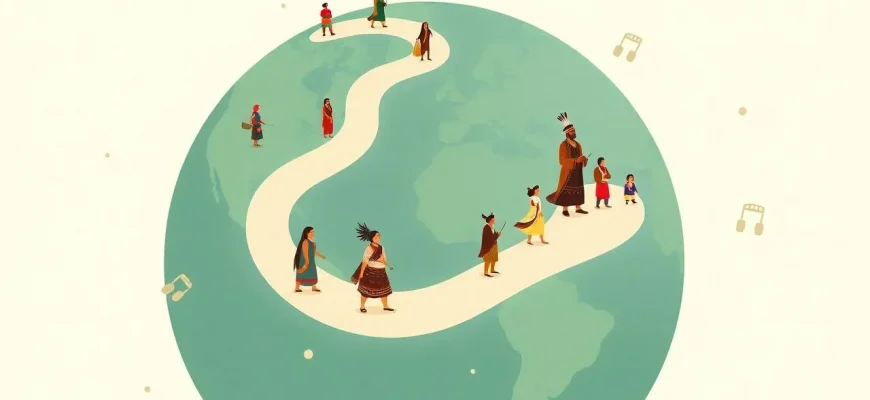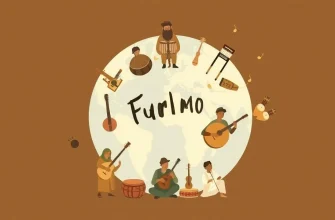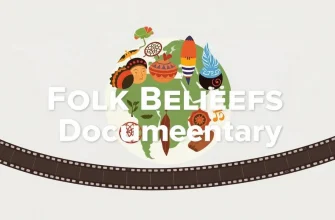Embark on a cinematic journey through the lives, traditions, and challenges faced by Indigenous communities around the world. This curated collection of documentaries not only sheds light on the vibrant cultures of these often overlooked groups but also provides a platform for their voices to be heard. Each film in this selection offers a unique perspective, making it an invaluable resource for anyone interested in anthropology, history, or simply seeking to broaden their understanding of our diverse world.

Reel Injun (2009)
Description: This documentary traces the portrayal of Native Americans in Hollywood films, from early silent movies to contemporary cinema, revealing stereotypes and the evolution of representation.
Fact: The film features interviews with Native American actors and filmmakers, providing insider perspectives on the industry.
 Watch Now
Watch Now 
Rumble: The Indians Who Rocked The World (2017)
Description: This film delves into the profound influence of Indigenous musicians on the evolution of rock music, showcasing talents like Link Wray and Buffy Sainte-Marie.
Fact: The documentary was nominated for a Grammy Award for Best Music Film in
 Watch Now
Watch Now 
We Shall Remain (2009)
Description: A five-part series that traces the interaction of Native Americans with European settlers and the United States government, highlighting key historical events from the perspective of Indigenous peoples.
Fact: The series was produced by WGBH Boston and was part of the American Experience series on PBS.
 Watch Now
Watch Now 
The Last Shaman (2016)
Description: Follows a young American's journey to the Amazon to find healing through shamanic practices, offering insights into the spiritual and medicinal traditions of the Shipibo-Conibo people.
Fact: The film was shot over the course of five years, capturing the real-life transformation of the protagonist.
 Watch Now
Watch Now 
Our Spirits Don't Speak English (2008)
Description: This documentary explores the impact of Indian boarding schools in the U.S., where Native children were forcibly assimilated into American culture, losing their language and traditions.
Fact: The film includes interviews with survivors of the boarding school system.
 30 Days Free
30 Days Free 
In the Light of Reverence (2001)
Description: This documentary examines the sacred lands of three Indigenous tribes in the U.S., exploring their spiritual connections to these places and the conflicts with modern development.
Fact: The film was directed by Christopher McLeod, who has made several documentaries about Indigenous issues.
 30 Days Free
30 Days Free 
The Inconvenient Indian (2020)
Description: This documentary, based on Thomas King's book, explores the complex relationship between North American Indigenous peoples and the settlers, offering a critical look at historical and contemporary issues.
Fact: The film was adapted from a book that won the 2014 RBC Taylor Prize for literary non-fiction.
 30 Days Free
30 Days Free 
The Spirit of Crazy Horse (1990)
Description: Focuses on the 1973 Wounded Knee occupation by the American Indian Movement, providing a deep dive into the activism and resistance of Native Americans.
Fact: The documentary includes interviews with key figures from the American Indian Movement.
 30 Days Free
30 Days Free 
The 13th Step (2013)
Description: Chronicles the life of a Lakota Sioux woman who, after overcoming addiction, becomes a leader in her community, advocating for sobriety and cultural revitalization.
Fact: The film was produced by the Native American Public Telecommunications.
 30 Days Free
30 Days Free 
The Canary Effect (2006)
Description: Investigates the historical and ongoing effects of colonization on Native American populations, focusing on health disparities, cultural genocide, and resistance movements.
Fact: The title refers to the canary in the coal mine, symbolizing the early warning signs of societal issues.
 30 Days Free
30 Days Free 








